How to Find Joy in our Busy Modern Lives; An Interview with Sophie Cliff – The Joyful Coach
Travelista’s Em Hope sits down with successful author, podcaster and life coach Sophie Cliff, otherwise known as The Joyful Coach. In this Travelista exclusive interview, Sophie shows us how to find more joy in our busy modern lives and insights into her own career and motherhood journeys.
Sophie Cliff is a powerhouse life coach, published author and podcaster dedicated to helping people rediscover their joy and create lives they truly love. Through her work, she combines practical strategies with her extensive wisdom and research, empowering individuals to live with intention, even in the face of life’s challenges. She lives in Leeds, UK with her husband and daughter.
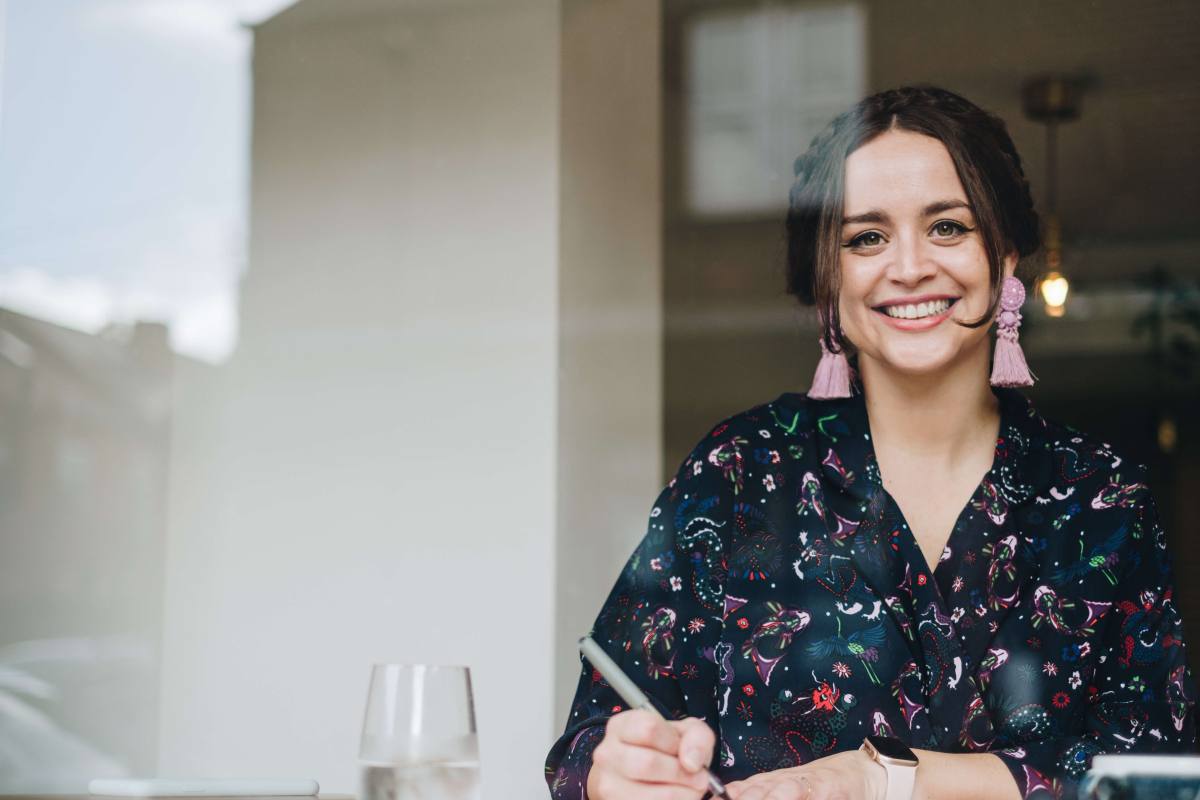
Sophie, could you tell us a bit about your background and how you came to be here today as The Joyful Coach?
So I actually started in a completely different career – I worked in corporate sales and marketing for the first 10 years or so working for big companies and also some smaller tech startups. It was in 2018, I decided to retrain and do something different. Although I had great opportunities and great benefits, I just always kind of felt like I was a square peg in a round hole and it wasn’t right. I wasn’t really using my strengths.
The other thing that led me to take it seriously was in 2016. I had a traumatic bereavement and that really reshaped how I thought about life. Beforehand, I had been very much chasing the goals and the milestones and trying to keep up with my peers and striving for all of the things that we are taught will make us happy. I kept thinking, “I’ll be happy further down the line” – but that experience just really reminded me that none of us know how much time we’ve got left.
Ultimately, it’s the joy in the everyday that matters and so I felt really passionate about helping people to realise that without having to go through the hard thing first.
What a breakthrough to have – it’s great that you can take those teachings and help to develop people’s mindsets after something so challenging. What are the core values and key messages that you stand for as The Joyful Coach?
I love this question, because I really do always see my business as a ‘values led’ business and organisation. It’s really, really important to me and at the heart of everything we do. So, connection is really key. We know that connection is the number one predictor of joy, according to research. So always trying to make opportunities to connect, whether that is me one-to-one connecting with a coaching client, workshops or bringing people together so they can connect with other people.
Optimism is also a big one. We have to believe that things can get better in order to want to try and change things.
Keeping things realistic is also really, really important to me. Everything that I try to share through my work is evidence based. I’ve got a Master’s in positive psychology and I am a published researcher – I have studied this stuff in depth. Positive psychology has been around for 25 plus years now. We’ve got thousands and thousands of great insights and pieces of advice from all of the research that has been done and a big part of my work is taking that stuff out of those journals and putting it into people’s hands so that they can make positive, material, impactful changes in their lives without having to become this perfect type of person.
That’s really interesting – just to draw on the value of connection that you mention… at Travelista we’re based on community and therefore connection – but what advice would you give to people who perhaps haven’t found their ‘tribe’ so to speak or might even feel disconnected from themselves at present?
What’s really interesting from the research is that connection is the biggest predictor of joy but that connection can come in many different forms so we often think it has to be these deep meaningful connections but connecting with someone like-minded could be on the internet with someone who you share a hobby with, it can be having a regular chat with your barista in your local coffee shop or saying “hello” to the postman. All of that kind of stuff signals to our brain that we belong.
The other thing is sometimes it just takes that tiny bit of courage. No-one’s ever going to turn down the opportunity to get together or to have a catch up with someone who’s like-minded, who shares the same values and who’s interested in the same stuff.
And actually, I know from my work that more people are looking for that than ever before. So if you can build up that courage to say, “Do you fancy going for a coffee?” Or, “Shall we have a little Zoom drink together?” it’s very, very rare that that would be met with anything other than a yes. It’s sometimes just about putting ourselves a little bit outside of that comfort zone.

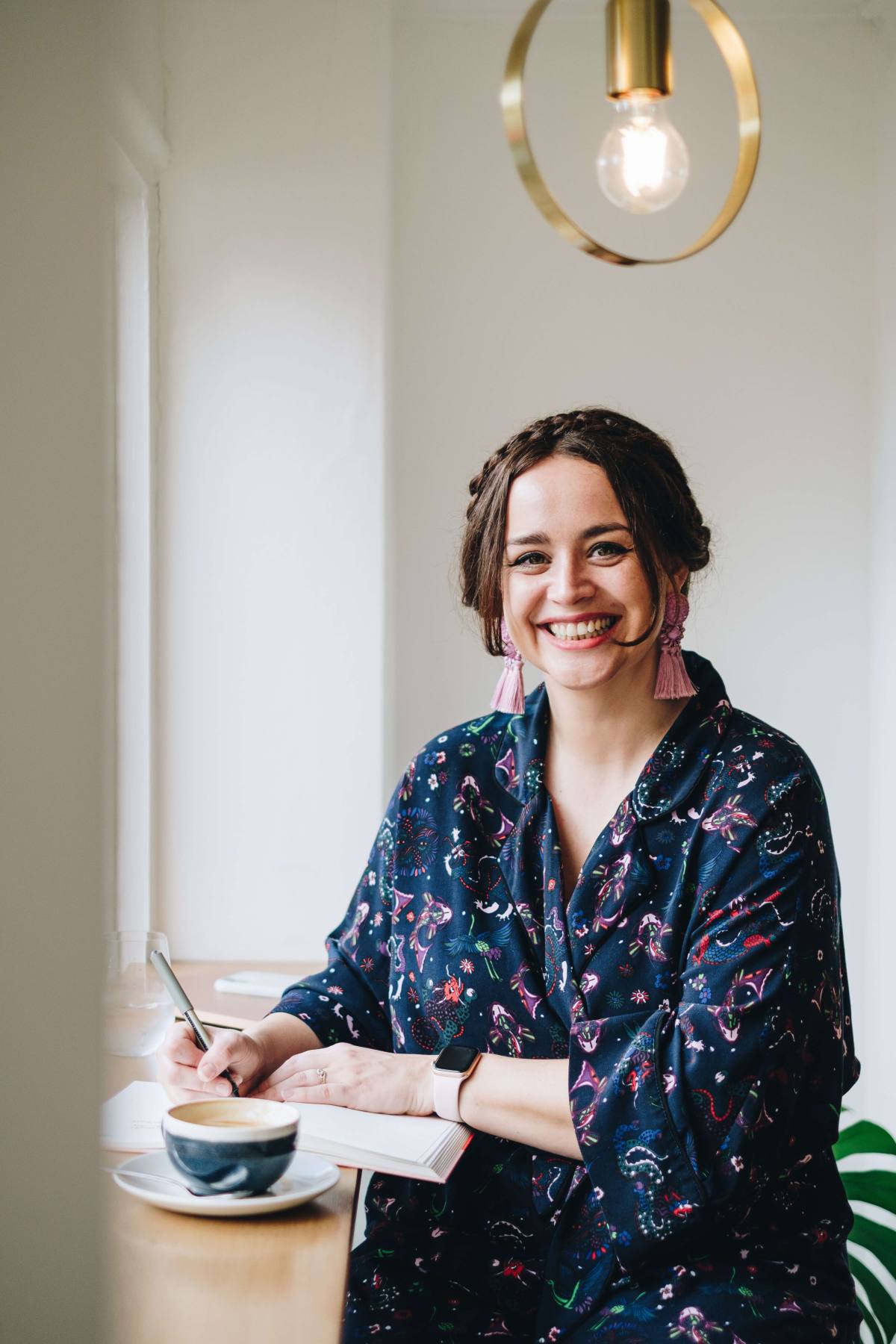
Yeah, to be fair, what’s the worst? If they do say no, I guess then you kind of know that maybe that’s not your person. So I suppose it’s a win win in that way, isn’t it?
Yeah, exactly!
How can we avoid feeling overwhelmed by the pressure of setting goals, especially at the start of a new year?
The reason why January can feel very overwhelming is because we are hearing everybody else’s goals and If we are constantly bombarded with everyone else’s goals or what everyone else is hoping to achieve, it can then be hard to listen to what actually is true to us.
So, I would encourage people to do two things. One, to think about, what their unique context looks like. What’s your environment? What’s your job situation? What do your relationships look like? Because we will all have different priorities and values based on those things. For example, I have a young family at the moment. My priorities, five years ago would have been how much travel can I fit into this year? That’s not my priority at the moment because that’s not what my context dictates.
The other thing that I would encourage people to think about is really how they want to feel rather than what they want to have. At the start of the year, we can create these bucket lists of things to achieve, but it’s thinking about how we want to feel that will help us to make better lists. If you want to feel content, what are the things that are going to make you feel more content this year? If you want to feel adventurous, what does that look like? So often we don’t actually think about the feeling. We just assume we will be happy on the other side of getting something.
Part of your gift as a coach is to support clients in setting personal and professional boundaries, however sometimes boundaries aren’t always well received. So what advice would you give for someone who’s maybe riding out that wave of having set a boundary, but it’s been hit with a bit of backlash?
Whenever I’m talking with my clients about boundaries, we talk about taking the emotion out of it and we use a little bit of a formula: “I need… because…so therefore…”
For example, “I need you to help me prioritise my to do list at work, because there are lots of competing priorities coming at me and I’ve only got a certain amount of time.Therefore we need to get some clarity on what is most important so that I can have the greatest impact?”
If we phrase something like that and we take the emotion out of it, it’s really hard for people not to respect that boundary or hard for us not to uphold it. By taking the emotion out of it, I think it gives us a bit of autonomy and a bit of control and it gives us a bit of a framework in order to clearly communicate that boundary.
So basically sticking to the facts then?
Yeah. It’s not that we’re saying, “I’m overwhelmed, I can’t cope.” We’re just saying, rationally and factually, there is only so much we can do.
That’s very true. Speaking of emotional tendencies, imposter syndrome is the worst. How would you combat imposter syndrome?
I actually don’t think we can combat it completely. There’s a story I tell in my first book where I talk about watching, Glastonbury when Adele headlined and she told this story about how she was asked to record the James Bond soundtrack, and the first time she was asked she turned it down because she thought it was a hoax. She’d had all these number one records and she thought that she was like being pranked. I realised then that imposter syndrome doesn’t tell you anything about how qualified you are because she was probably the most qualified person in the UK to record the James Bond soundtrack, but she didn’t feel that way because she was experiencing that imposter syndrome.
And so, I think there are a few things we can do. One is to remember everyone gets it. It doesn’t actually tell us anything about how qualified we are. It’s just a normal human thing that we go through when we’re doing something new. And, the more we go through it, the more evidence we have that we can do it.
The second tip that I always share is to treat your imposter syndrome like it’s a younger version of you, because that’s often what it is.
It might be like a younger version of you who was told off by a teacher and therefore doesn’t like to put their hand up. That younger version of us can feel a bit stressed out because in that moment they want to hide away and protect themselves. But, if we can recognise it and name it almost as that younger version, we can reassure ourselves that life is different now, we’re much older, we’ve got different experiences and different skills, and we can almost soothe that inner child that perhaps is connected with the imposter syndrome.
And then the final tip that I’ve got is a really practical one. Keep either an achievement log or a “brag bank” as one of my clients renamed it, where when we are getting positive feedback or when we are achieving things and we’re making progress, we are logging it so that we’ve got some objective evidence that we are good and that we do add value. I think that helps to just counter that imposter feeling a little bit.
How can we distinguish though between imposter syndrome and perfectionism or just not genuinely being ready?
You may have come across the study that showed men will apply for a job when they read a job description and they feel like they can do 40 percent of things on the job description because they trust that the rest of it they will pick up on the job.
Women wait until they can do 100 percent of things on the job description before applying.
So it is something that is societally built into us that we expect perfection from ourselves. Of course there will be times where we know we’re not ready, and that’s where we can seek mentorship or we can create a development plan.
In my experience of coaching nine times out of 10, it’s an internal mindset thing rather than a practical thing because we can always learn a new skill. We can always find a mentor. We can always get into a new role and seek advice and seek opportunities. But, if we’re not actually putting ourselves there, we’re never going to close that gap and give ourselves the opportunity to grow and develop.
On perfection, in my new book, The Hustle Cure, I developed this idea of four productivity archetypes, and they are: The Doer, so someone who is always busy, who just keeps themselves busy, never really thinking about where they want to get to or why.
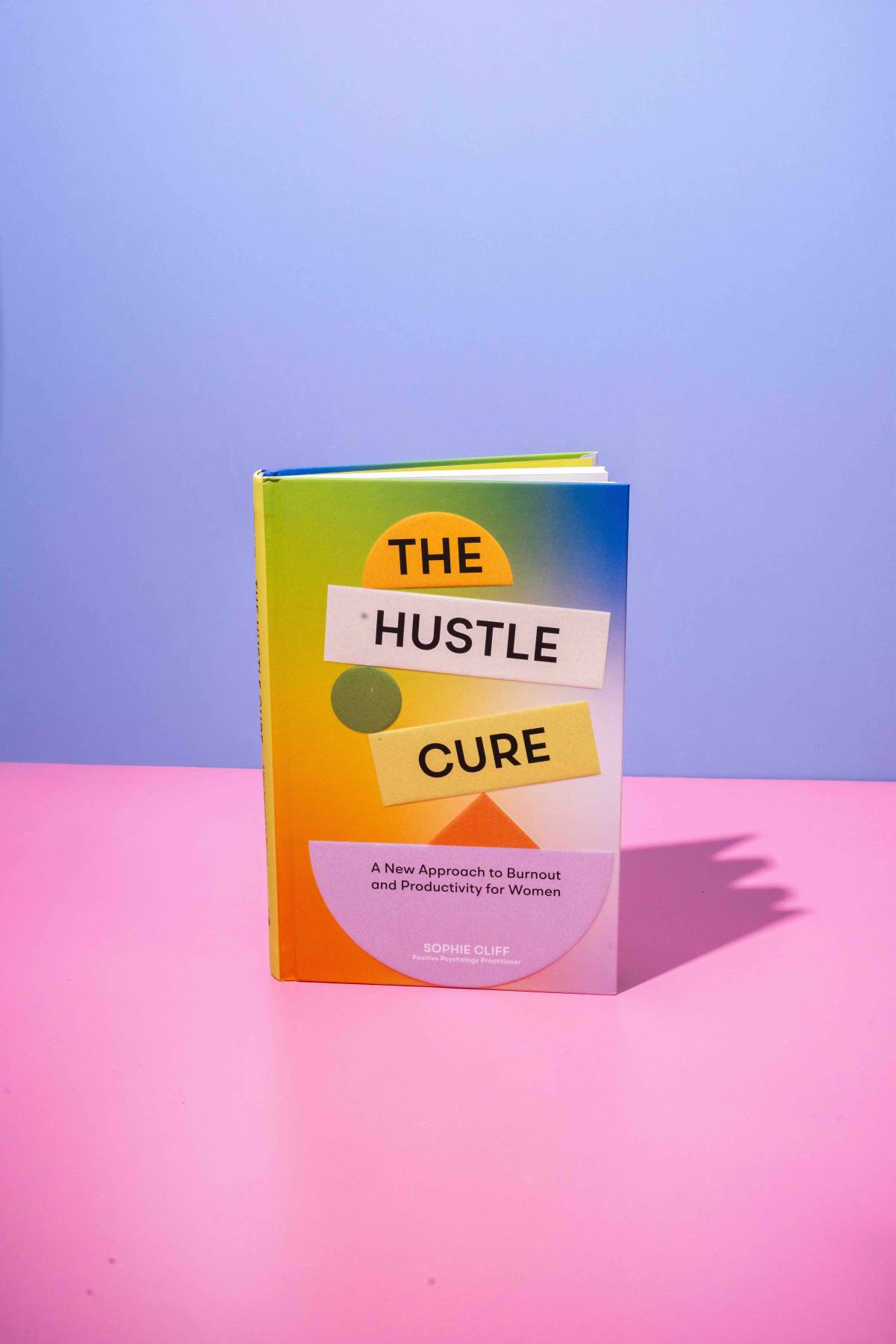
There is The Perfectionist, who perhaps is held back from being their most productive selves because they feel like nothing’s ever quite ready, and they want to feel 100 percent certain before they put things out into the world. There’s The Dreamer, who can very much visualise where they would like to be, but struggles to know what action will help them to get there. And then, there’s The Procrastinator who knows what they want, knows what they need to do to get there, but is perhaps cynical that change will ever happen, so they don’t take action. There is lots and lots of advice in the book around letting go of some of that perfectionism because ultimately we think it’s making us more productive but it actually just costs us opportunities and costs us time.
That’s such an interesting concept. Back on the idea of joy, the current cost of living can limit our options to access tangible joy at times, for example, trips to places, activities and fulfilling hobbies. How can we make sure that we’re prioritising our joy, even when life feels so expensive at the moment?
What we actually know from the research is the simple stuff is actually way more powerful in terms of creating joy than some of the big things and there are a few pillars of joy. So we talked about connection earlier on, experiences is another one, so things like trips and activities would fall into that, but that can also be experiences in the sense of getting outside, taking a different route to work, going along to free events.
Learning is also a real predictor of joy. So going onto YouTube and trying to learn how to draw something or trying to learn a new language using Duolingo or something like that can help to boost that joy.
The next one is savouring. So really being present for the good stuff that’s already there.
Most of us don’t actually need to add loads more stuff to our life to feel more joyful. We just need to tune into what is there.
So, being present when we’re with our friends and enjoying that time instead of being like sucked into our phones, or really sitting down and actually enjoying the meal that we’re eating instead of scoffing it while we’re watching tv and also trying to hang the washing out. It’s often that split focus that takes the joy from our life rather than the fact that life isn’t that isn’t already joyful.
And then also gratitude. I always say, joyful living isn’t about pretending everything is great. It’s not that we want to minimise and pretend that challenges don’t exist. They’re an important part of life. But what we do want to get better at is giving that good stuff, the same level of focus and attention.
You mentioned before, you’re very centered around family life, particularly at the moment, you’re now a mum and you’re expecting your second child – congratulations! How has your experience of becoming a mum impacted or redefined your theories on seeking joy and mental wellbeing?
I think the biggest lesson learned for me is that children are very, very good at being in the moment. My daughter never stresses about how our mortgage is going to get paid, or what she’s having for her dinner. She is so fully in the moment, and we will go out for a walk, and she will point out when she’s found something growing out of the wall that she’s fascinated by, or a song will come on, and she’ll say, “Come on, mummy, let’s dance!” – she’s so quick to seize the joy in the everyday. So often we get swept up in the to-do list or what will happen next year, that we forget that there’s loads of joy available to us in the here and now.
The other thing that I’ve really learned, is that children, or anyone really, don’t do what we tell them, they do what is modelled to them. So, I can tell my daughter however many times a day, that I just want her to be happy, and I want her to prioritise her joy, but if she doesn’t see me doing that, she won’t believe that that is safe for her.
So it’s important for me to practise finding my joy, because that tells her that that’s safe for her to do it as well.Its not just kids either, I know since I’ve been doing this work, my sister prioritises joy more because she’s seen me do it.
Sometimes, especially if we’re people pleasers, we need a bit of a reminder that it’s not selfish to prioritise joy. It’s actually leading by example and it’s making it safe for other people to prioritise their joy as well. Because they won’t do what we tell them to do, they will do what feels safe to them and what has been modelled to them.
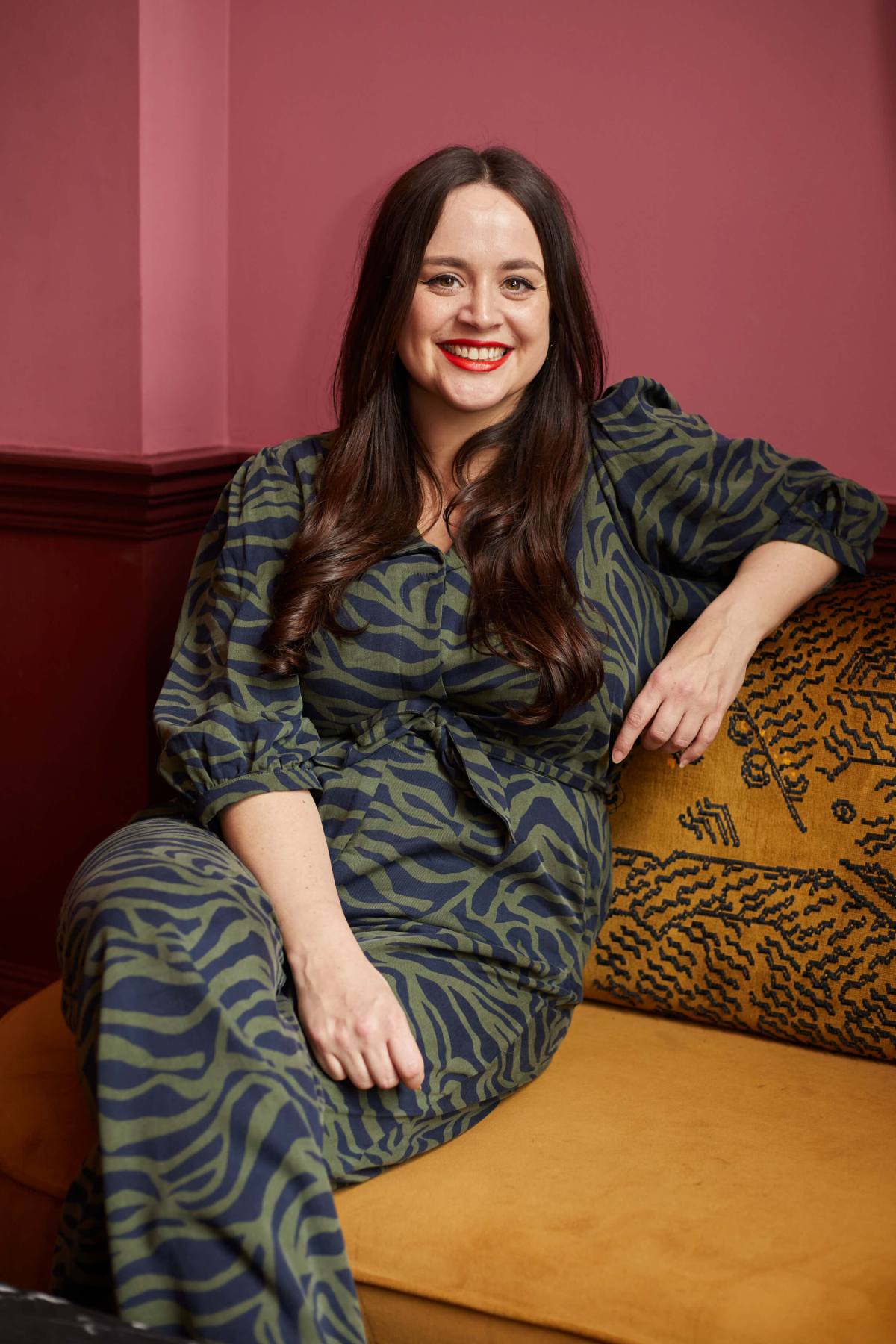
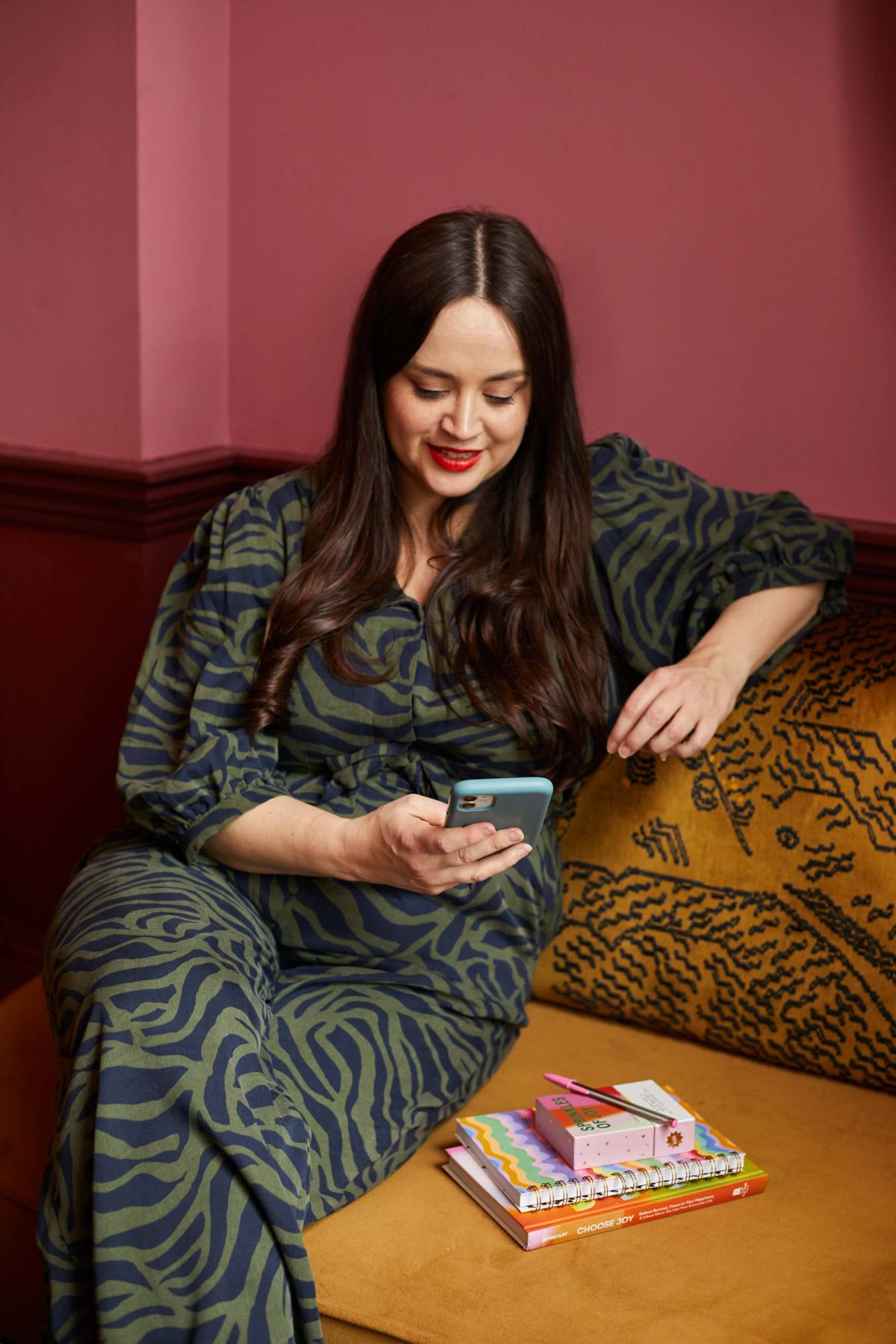
Like you say, leading by example is so important. I’m curious, how do you personally juggle, being a mother, a coach, an author, and all the other roles in your life? How can women find that balance between duties and passions?
I’m not going to sugarcoat it and pretend it’s all simple. It’s not. But the couple of things that really helped me is clear communication and asking for what you need. I’m very lucky that, you know, I get that support that I need at home, whether that is from my husband, whether that’s from my parents who are downstairs playing with my little girl now, so I can do this, you know, it using that village, whatever that looks like, essentially we can do it all, but we can’t do it all alone is the way I tend to think about it.
And the other thing is that I think we often see the passion and the duty as this trade off that butts heads and they’re constantly competing for attention. My experience has been when we are prioritising our passions, the duty stuff is so much easier and vice versa. The more time I spend with my daughter, the more excited I am about my work and the more time I get to pour into my work, the more present I could be for my daughter.So I think what’s helped me is not seeing them as two competing opposites, but trying to see that one fuels the other.
And logistically it is sometimes very challenging! There are lots of juggles with childcare and rearranging calls and things like that. But energetically, I know that one feeds the other and I’m a better mum because I do things that I’m passionate about. And I am even more passionate and care more deeply about my work because I’m a mum.
I like that outlook and I guess by prioritising your passions, you’re going to be adding more joy into both of your lives. If someone could add just a little bit of joy into their day today, where would you tell them to start?
Focus on gratitude and think about what would you miss from your life if your life was to change completely tomorrow? Because as we saw in the pandemic, so much of the stuff that brings us joy, we take for granted. And it’s only when it’s taken away from us that we realise how important it is to us.
The other thing I would recommend people do is to just find one ordinary, mundane, completely run of the mill part of your routine and try and make it as joyful as possible. So, it might be dropping your kids off at school. How can you be fully present? How can you all be singing in the car together? Or you can be listening to what is going on with their day instead of having the radio on and thinking about your to do list? How can you just make that moment feel as connecting and joyful as possible?
So, make an occasion out of even the small things? I love that so much!
Yes! It’s like the same theory behind the ‘romanticise your life’ thing. How can we remind ourselves that things are already really good in life?
As we’re a like-minded bunch at Travelista, largely with a love for travelling, it would be interesting to know how big of a role travel plays in your personal life and your personal approach to joy?
Yeah, so it used to be one of the number one pillars before I had children. I think travel gives us the opportunity to do all of those things that we’ve talked about today, which is to be really present in our surroundings, to feel really connected, to engage with different cultures or with art and all of that stuff. Before being parents, it used to look like how many trips could I go on? And my husband and I really love a city break. That’s always been our travel preference.
Now we might go abroad once or twice a year if we’re really lucky, but what we do, is we really try to find that travel and adventure in everyday stuff.
So, getting outside as much as possible, going camping, going to festivals is a big thing for us because my husband’s a musician. And again, just being reminded that it doesn’t have to be somewhere far flung to get, like to be in a new environment, to have your senses heightened, to learn new things, to connect with a different culture.
So true, I think being a tourist in your own city can be fun sometimes too! You’ve released a fabulous new book, which you mentioned before, The Hustle Cure. I know you’ve already given us a bit of insight, but is there anything else you can tell us about your new book?
So the premise behind the book is that when I was pregnant with my daughter, I knew I needed to improve my time management skills. Everyone kept telling me I’d have no time once I had a baby. So I bought all of the productivity and time management bestsellers and very quickly realised they were all written. by men and mostly for men. So the advice, while they were little nuggets here and there, didn’t actually feel that relevant to my life.
And I was very curious about what challenges and opportunities do we have for productivity as women, given that we face different, you know, we have different biology, we have different opportunities, we have different societal expectations, we have different strengths, and that’s basically what the book is. It’s a deep dive on how we can approach productivity from a female perspective. So it looks at that reality and it offers some practical, personalised and tailored solutions that work for women. There’s lots of research that’s gone into it, lots of client case studies and ultimately that’s what I want it to be, a grounded and practical productivity guide. It helps you to get to know what your real life is, what your strengths are, what your intuition is telling you, what your energy cycles are etc.
That sounds great – It’s on my reading list and I can’t wait to dive into it! So, if people have felt inspired by this interview, how can they work with you – The Joyful Coach?
You can find all of the details of my work at sophiecliff.com or over on Instagram @sophiecliff. I do one -to-one coaching and I also run a monthly membership called The Choose Joy Club where we have monthly workshops, group coaching sessions, a book club, journal prompts, basically everything you could need to try and find more joy.
Sophie’s book The Hustle Cure: The New Approach to Burnout and Productivity for Women is available to buy now on Amazon.
Fab, thank you so much, Sophie. We’ve loved having you for a chat and we can’t wait to see what 2025 brings for you!
Read more by Em Hope.

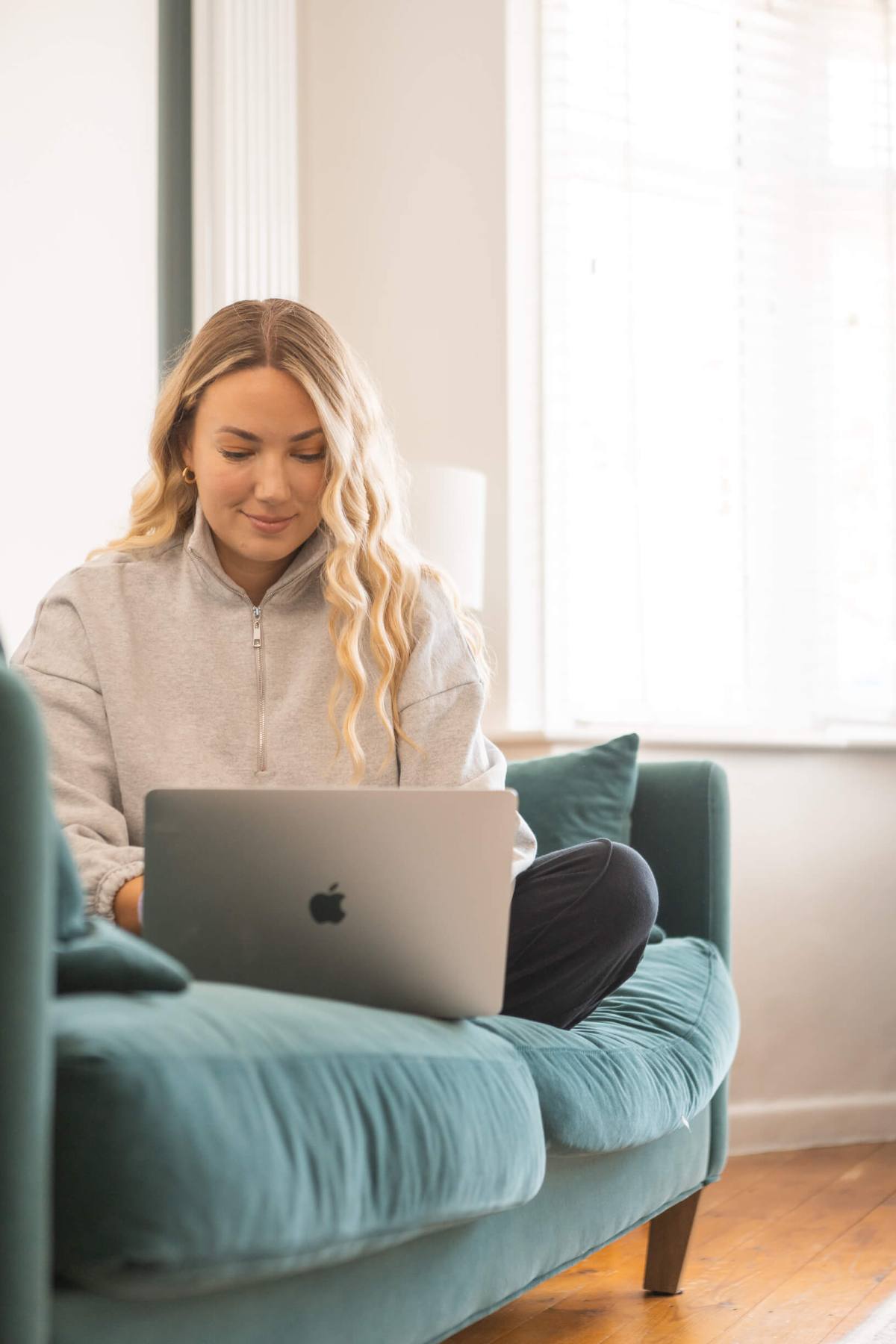



Leave a comment